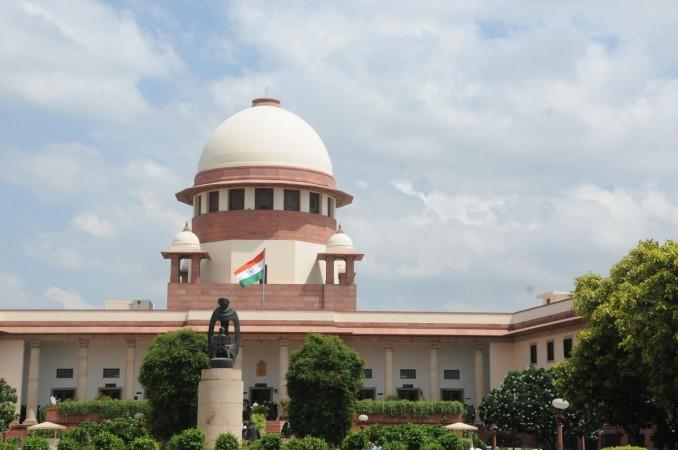Former Chief Justice of India Ranjan Gogoi will take oath as an Upper House member at 11 am on Thursday, March 19 according to Rajya Sabha bulletin.
In an unprecedented move, President Ram Nath Kovind Monday, March 16 nominated former Chief Justice of India Ranjan Gogoi to the Rajya Sabha. The former CJI will be the 12th nominated member in the Upper House of Parliament and replace KTS Tulsi, who is retiring.

Following his nomination, Gogoi, who was also part of the first-ever press conference by the four senior Supreme Court judges against then CJI Dipak Mishra, said that he will work like a bridge between the judiciary and legislature.
'My presence in parliament opportunity to project views of judiciary'
"I have accepted it since I have a strong conviction that the legislative and the judiciary must at some point of time work together for nation-building. My presence in parliament will be an opportunity to project the views of the judiciary before the legislature and vice versa," the former Chief Justice told reporters in Assam's Guwahati.
However, questions are being raised on his nomination by the government and those raising it, includes his former colleague Justice (retired) Madan B Lokur, who had also accompanied him to the unprecedented presser against CJI Misra. Speaking to The Indian Express, Lokur said that he was not surprised by Gogoi's nomination but he didn't know it would come so soon.

Criticism by opposition
The Congress has criticised the government over Justice (rtd) Gogoi's nomination to the House of Elders. The President nominated him to the Rajya Sabha on Monday after almost 4 months of retirement from the apex court.
"The nomination of the retired CJI to the Rajya Sabha is serious, unprecedented and unpardonable assaults on the basic structure of the Constitution, which subsumes the independence of the judiciary as held by the Supreme Court judgement," said Abhishek Manu Singhvi.
Stating that it's not about any individual or Justice Gogoi, Singhvi said, "Our Constitution is based on separation of powers of the judiciary and the executive. The judiciary thrives on perception od aastha (belief) and vishwas (faith). But all of them have taken the beating."
'Let me first take an oath, then I will speak in detail'
In January 2018, four of the most senior judges of the Supreme Court - Justices Ranjan Gogoi, Madan B Lokur, J Chelameswar, and Kurian Joseph - in an unprecedented move, held a press conference against then Chief Justice of India Dipak Misra and raised questioned about the independence of the judiciary.
While two of the four Justices, Joseph and Chelameswar, have already announced that they would not accept any position offered by the government post their retirements, there were speculations that Gogoi would get some honorific. During his last days in office, he was seen with Prime Minister Narendra Modi on several occasions, though not very uncommon, raised many eyebrows.
In November 2018, the Supreme Court had held a dinner for the judges of BIMSTEC (Bangladesh, India, Myanmar, Sri Lanka, Thailand Economic Cooperation) countries. There was nothing wrong with the dinner but PM Modi's presence and not informing the press about it stood out. The dinner took place during the times when the Supreme Court was hearing the Rafale case.
Although Gogoi has given his reason, he said that he will hold a press conference after taking oath as a Rajya Sabha MP and reveal why he accepted the offer. "I will go to Delhi probably tomorrow. Let me first take an oath, then I will speak in detail to the media why I accepted this...," Gogoi said.














